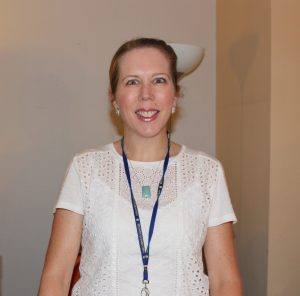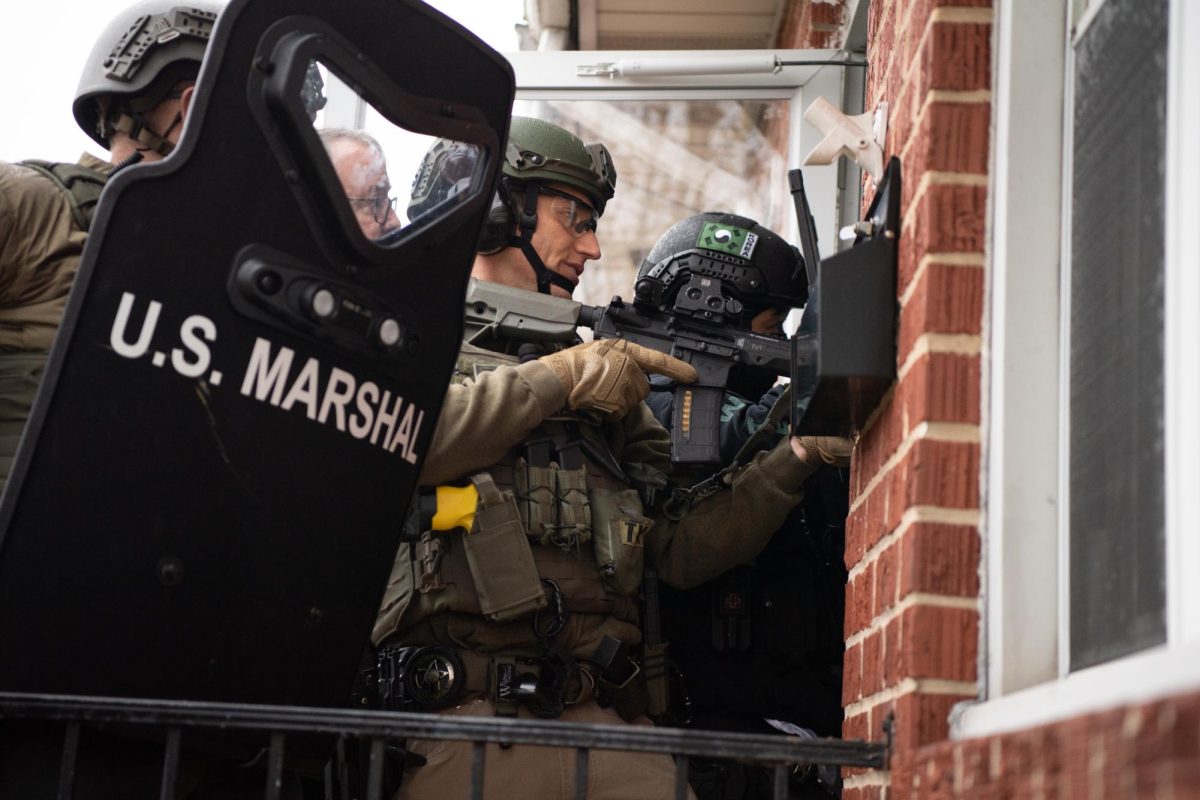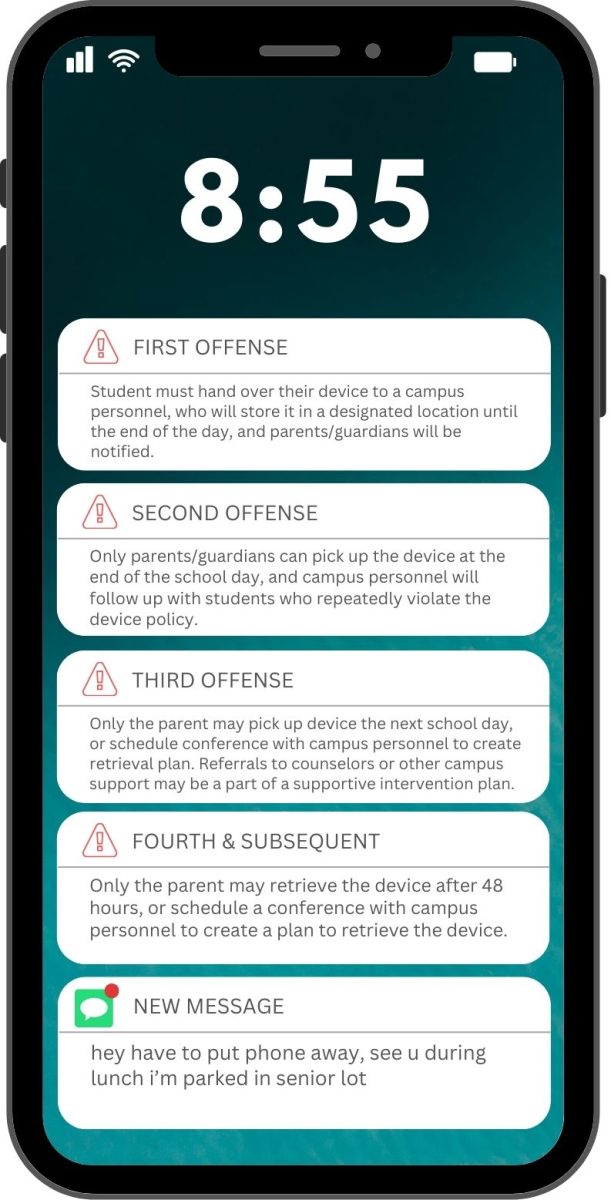School social worker creates programs to support students
 From her very first day at McCallum, school social worker Brooke Anderson said she felt welcomed.
From her very first day at McCallum, school social worker Brooke Anderson said she felt welcomed.
“I wasn’t quite sure what to expect,” Anderson said. “Walking in to a new job is always kind of exciting, and I just remember really being blown away by how friendly everyone was and how welcoming everyone was. I was also happily surprised how people really seemed to understand my role and were excited, and right away were providing me with referrals, names of students they wanted me to check in with.”
Anderson said because hers was a role and service that people at the school really wanted felt good.
“I was already working for the school district in another capacity as a social worker,” Anderson said. “I knew the social worker before, [Bree] Borgsteadt, and she told me she was leaving and I was interested in getting back in to working more with a variety of age levels because I was focused only on elementary at the time. I was excited that I could possibly have the opportunity to step in to this role.”
Anderson serves the McCallum vertical team, which includes 13 schools of all levels. However, most of her time is spent at McCallum.
“I think I’m more visible here, so students come in and talk with me, and the counselors know me better, so they refer a lot more to me,” Anderson said. “For the other schools, I’m primarily a consultant. If the counselors have concerns about a family or a student, they call me; they ask for some information or advice. I might contact the family by phone, sometimes I’ll do home visits, but a lot of my time, I would say almost 50 percent of my time, is spent here.”
At the school, Anderson has started a group called Friends of McCallum Students, which is a group of concerned parents who want to make sure the needs of all students are met.
“I was following the other social worker’s lead when she was soliciting donations for bus passes because she found that to be a pretty big need of students, to make sure they got to school safely,” Anderson said. “As I was taking that over and soliciting donations, a parent came to me and said, ‘Well, what are some of the other needs? If kids need bus passes, they probably need some other things.’ We met and talked, and she thought that it would be good to open up to other parents who might be interested.”
Anderson has started a group for students with grief and loss, and another for coping with chronic conditions, whether that is a medical condition or a mental health condition. She also brought in a UT graduate student of social work to provide additional support for the students.
“The needs I see a lot are mental health,” Anderson said. “I think high school is a challenging time. There are lots of changes, not just physically and emotionally, but then there are also a lot of additional pressures once you get to high school with future planning. The course loads can be very demanding, so students many times need additional emotional support. Sometimes they can get that through school and sometimes they need a little bit deeper, a little more involved [support] and they need to be referred outside.”
Nurse Kathleen Volkaert works closely with Anderson to support the students.
“A lot of times I might be the first person to see a student that comes in just to maybe rest or chill out or whatever,” Volkaert said. “Then I find out by talking to them that maybe they’re having some anxiety or depression or just some psychosocial issues that really a therapist would be better at working with. I usually always ask them and tell them we have a social worker here on campus who can help refer them to outside agencies or who can even see them, so I ask if that’s okay. I always want to get the student’s permission for that. I will either email or call her and see if she can meet with that student.”
Counselor Mindy Croom, another staff member Anderson works closely with, said she is a great member of their team. She said Anderson is dependable and gets along very well with kids.
“When Bree left back in the fall, before we met [Anderson], we were like, ‘ugh,’” Croom said. “We were so sad, and then [Anderson] came in, and she’s just great. She hasn’t missed a beat.”
Anderson said her goal is to make sure every student knows there are services to help him or her.
“I’m always surprised when I meet with a new student,” Anderson said. “Like, ‘How have I not known about this? How has this student fallen through the cracks? They’ve been taking care of themselves for this long without any support.’ So my goal is to do some more outreach so that students know that this service is available because there are lots of caring and concerned people that want to help and provide some basic needs.”







